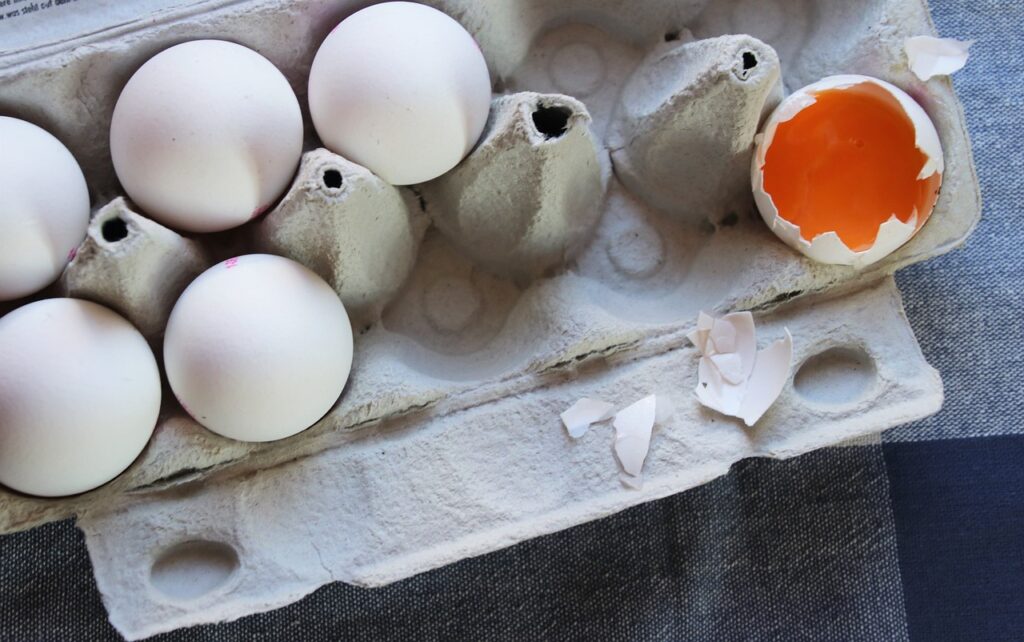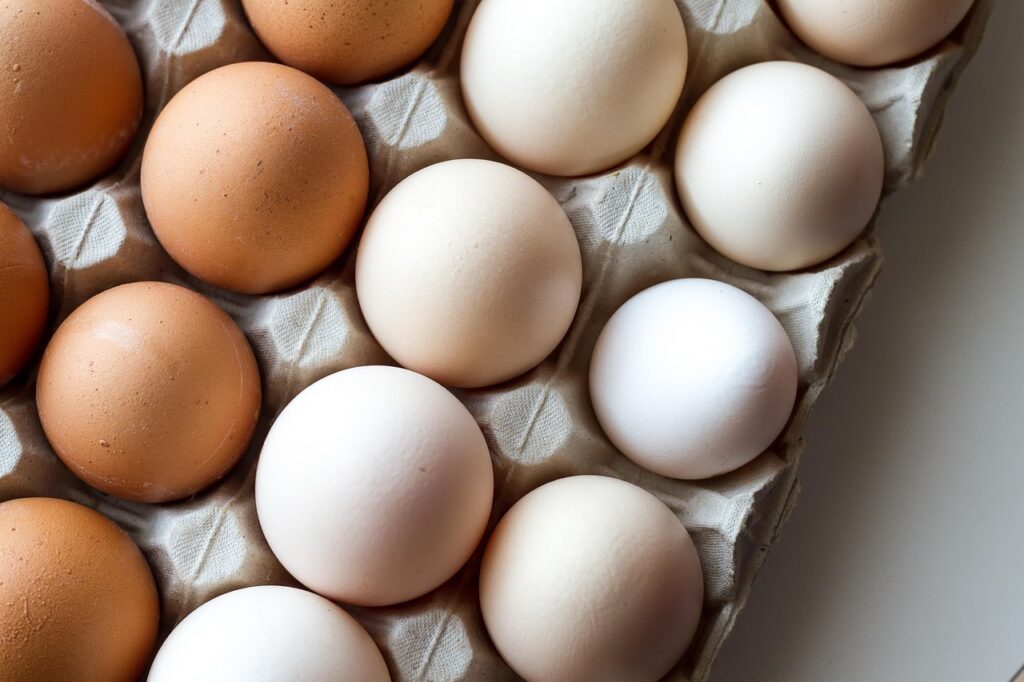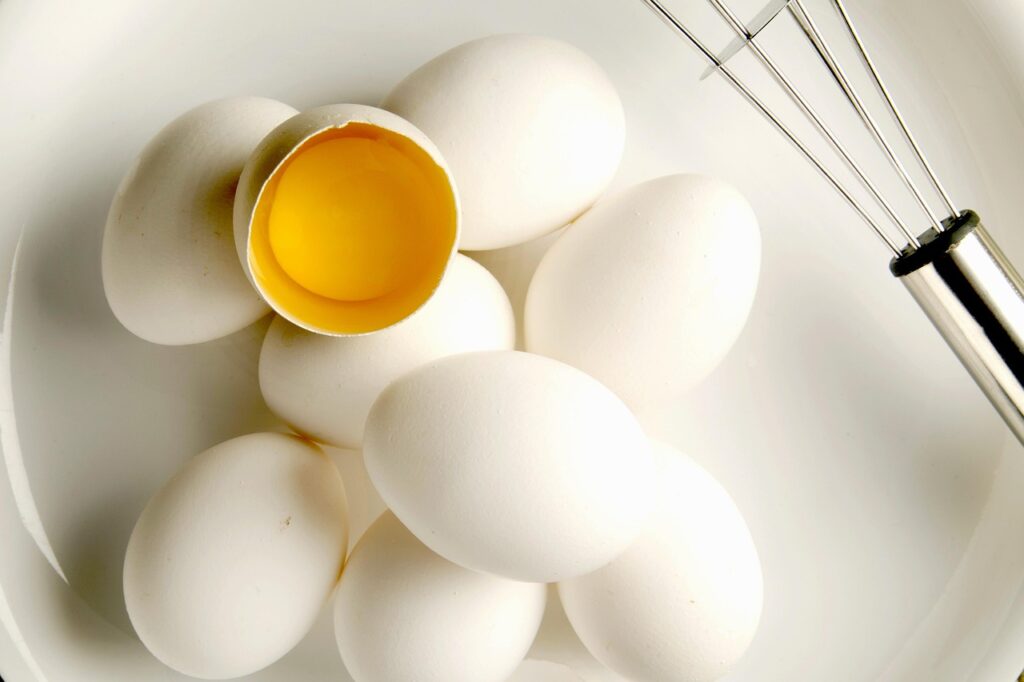Introduction
Eggs are one of nature’s most nutrient-dense and versatile foods. But if you’re not storing them correctly, you could be sacrificing freshness, safety, and even flavor. One common question for backyard chicken owners, homesteaders, and curious foodies is: how long will fresh eggs last on the counter? In this guide, we unpack the truth with science-backed answers, expert tips, and surprising insights that’ll change the way you look at egg storage.

Image by 🌸♡💙♡🌸 Julita 🌸♡💙♡🌸 from Pixabay
Understanding Egg Bloom: Nature’s Protective Layer
When a hen lays an egg, it’s coated in a natural, invisible layer called the bloom or cuticle. This protective barrier seals the pores on the eggshell and helps prevent bacteria from penetrating. It’s nature’s way of preserving freshness — particularly useful before refrigeration was widespread.
- Why is bloom important?
- It prevents bacterial contamination.
- It locks in moisture.
- It significantly extends the shelf life of an egg at room temperature.
- It prevents bacterial contamination.
Once washed, this bloom is stripped away, leaving the egg vulnerable. That’s why how your eggs are handled from the start is so important.
Washed vs. Unwashed Eggs: Why It Matters
In the U.S., commercial eggs are washed and sanitized, removing the bloom. This is why they must be refrigerated immediately. In contrast, many countries in Europe allow eggs to remain unwashed and stored at room temperature.
Comparison Table:
| Type of Egg | Washed | Bloom Intact | Needs Refrigeration | Shelf Life (Counter) |
| Grocery Store Eggs (USA) | Yes | No | Yes | 2 hours |
| Backyard Eggs (Unwashed) | No | Yes | No (for short-term) | 2-3 weeks |
| Washed Backyard Eggs | Yes | No | Yes | 1-2 hours |
Key Tip: If you’re collecting eggs from your backyard flock, avoid washing them until you’re ready to use them. This maximizes their counter life.
Room Temperature Storage: Risks and Best Practices
Room temperature storage may be safe only for unwashed, freshly laid eggs. Here’s what to consider before keeping your eggs out:
- Room temperature definition: 68–72°F (20–22°C)
- Safe duration: Up to 2–3 weeks for unwashed eggs.
- Danger zone: Anything above 85°F rapidly accelerates bacterial growth.
Best Practices:
- Store eggs in a cool, shaded place away from direct sunlight.
- Use a ceramic bowl or egg basket to keep air circulating.
- Date each egg with a pencil for tracking freshness.
If your home regularly exceeds 75°F, refrigeration is recommended — even for unwashed eggs.
Climate and Seasonal Factors That Affect Egg Longevity
Not all room temps are created equal. Humidity, heat waves, and cold snaps all impact egg safety.
- Hot climates: Accelerate spoilage and bacterial growth.
- High humidity: Can soften shells and promote mold.
- Cold environments: Mimic refrigeration, extending freshness.
In tropical regions, counter storage may not be feasible long-term. Consider using a root cellar, cool pantry, or thermo-regulated storage box.
Signs Your Eggs Have Gone Bad
Don’t rely on looks alone. Here are signs your eggs are no longer safe:
- Smell: A rotten egg odor is unmistakable — discard it immediately.
- Appearance: Cracks, slimy shells, or discoloration are red flags.
- Sound: If you shake an egg and hear sloshing, it’s likely spoiled.
Err on the side of caution: When in doubt, throw it out.
The Float Test: A Foolproof Freshness Check
The float test is one of the easiest, most reliable ways to test egg freshness.
How It Works:
- Fill a glass or bowl with water.
- Gently place the egg inside.
| Result | Meaning |
| Sinks and lays flat | Very fresh |
| Sinks and stands upright | Still good, but use soon |
| Floats | Bad — toss it! |
As eggs age, the air pocket inside enlarges, making them buoyant. This test works whether your eggs are washed or unwashed.

How Long Do Fresh Eggs Last in Different Conditions?
Here’s a breakdown of egg longevity based on storage method:
| Storage Method | Washed Eggs | Unwashed Eggs |
| Room Temperature (68–72°F) | 1–2 days | 2–3 weeks |
| Refrigerator (below 45°F) | 3–5 weeks | 3 months |
| Freezer (whisked and stored) | Up to 1 year | Up to 1 year |
Note: Never freeze eggs in their shells. Always crack and whisk before freezing.
Comparing Counter Storage vs. Refrigeration
| Feature | Counter Storage | Refrigeration |
| Convenience | High | Moderate |
| Shelf Life | Shorter | Longer |
| Safety | Conditional | Consistent |
| Best for | Unwashed, fresh eggs | All eggs |
If you’re running a homestead or getting eggs daily, counter storage can work. For most consumers, refrigeration is still the gold standard.
How to Store Eggs Safely Without a Fridge
If you’re off-grid or experiencing a power outage, here are safe alternatives:
- Water Glassing: Store unwashed eggs in a solution of pickling lime and water in a sealed jar — lasts up to a year.
- Coating with Mineral Oil: Seals the shell and mimics the bloom.
- Salt-Curing or Pickling: A preservation method with cultural roots across Asia and Europe.
- Cool Pantry or Root Cellar: Use a space naturally cooler than room temp.
These methods require precision. Always label and rotate your eggs to ensure safety.
Are Backyard Eggs Safe to Store on the Counter?
Yes — if unwashed and collected clean, backyard eggs are safe to store on the counter for up to 3 weeks. But cleanliness and consistency are critical.
Tips for Backyard Collectors:
- Collect eggs daily.
- Avoid washing unless dirty (spot clean if needed).
- Keep nesting boxes clean and dry.
If you’re selling or giving away eggs, it’s safer (and more legal) to refrigerate and label them as such.
Egg Safety Laws and Storage Recommendations Worldwide
Different countries have different egg safety standards.
| Country | Egg Washing | Refrigeration Required |
| USA | Mandatory | Yes |
| UK | Not Allowed | No |
| Japan | Optional | Yes |
| Australia | Optional | Recommended |
This disparity is based on how eggs are processed and the prevalence of Salmonella in the food chain. Be sure to follow local guidelines if you’re selling or distributing eggs.
Nutritional Impact of Counter-Stored Eggs
Does room temp affect egg nutrition? Not significantly.
- Protein and fat content remain stable.
- Vitamin A and D may degrade slightly in extended exposure to light or heat.
- Taste and texture might change over time — especially with older eggs, which become more runny.
For baking and cooking, slightly older eggs can actually be ideal due to their lower moisture content.

Image by Moira Nazzari from Pixabay
Tips for Urban Homesteaders and Egg Enthusiasts
Living in a city doesn’t mean you can’t enjoy fresh eggs. Here’s how:
- Use egg baskets to store on counters for short periods.
- Label your eggs with collection dates.
- Invest in thermometers for pantry monitoring.
- Join local forums to swap tips on egg handling without refrigeration.
Common Misconceptions About Egg Storage
- Myth: All eggs need refrigeration.
Fact: Only washed eggs require it. - Myth: Brown eggs last longer than white ones.
Fact: Shell color has no effect on shelf life. - Myth: Refrigerated eggs can return to the counter.
Fact: Once chilled, eggs should stay cold to prevent condensation and bacterial growth.
Understanding the facts empowers safer, more sustainable egg practices.
FAQs
Q1: Can I eat eggs that were left out overnight?
A: Only if they were unwashed and room temp stayed below 72°F. Washed eggs left out should be discarded.
Q2: What’s the safest way to store fresh eggs for long-term use?
A: Water glassing and refrigeration are the most effective long-term methods.
Q3: How can I tell if an egg has Salmonella?
A: You can’t — it’s invisible. Always cook eggs thoroughly and source responsibly.
Q4: Can you store cracked eggs on the counter?
A: No. Cracked eggs must be used immediately or refrigerated in an airtight container.
Q5: Why do European supermarkets store eggs unrefrigerated?
A: Because they’re unwashed and their food chain manages Salmonella differently.
Q6: Is it safe to eat fertilized eggs?
A: Yes. Fertilized eggs are safe as long as they’re fresh and stored properly.

Image by Baljeet Singh from Pixabay
Conclusion: Is Counter Storage Right for You?
Storing fresh eggs on the counter can be safe, practical, and even traditional — but only when you understand the science behind it. If your eggs are unwashed, collected cleanly, and stored at the right temperature, counter storage can work beautifully for up to 3 weeks. However, if you’re unsure or dealing with higher temps, refrigeration remains the safest bet.
